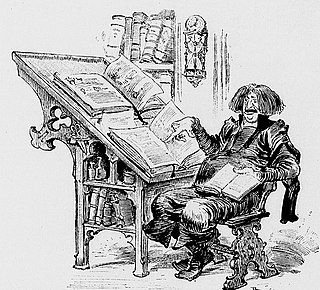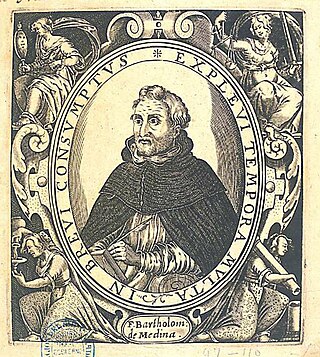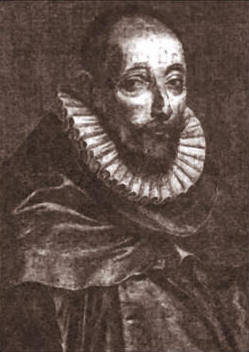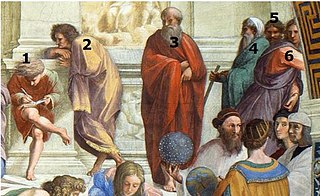Related Research Articles

In ethics, casuistry is a process of reasoning that seeks to resolve moral problems by extracting or extending abstract rules from a particular case, and reapplying those rules to new instances. This method occurs in applied ethics and jurisprudence. The term is also commonly used as a pejorative to criticise the use of clever but unsound reasoning, especially in relation to moral questions. It is the "[s]tudy of cases of conscience and a method of solving conflicts of obligations by applying general principles of ethics, religion, and moral theology to particular and concrete cases of human conduct. This frequently demands an extensive knowledge of natural law and equity, civil law, ecclesiastical precepts, and an exceptional skill in interpreting these various norms of conduct." It remains a common tool for applied ethics.
Skepticism, also spelled scepticism in British English, is a questioning attitude or doubt toward knowledge claims that are seen as mere belief or dogma. For example, if a person is skeptical about claims made by their government about an ongoing war then the person doubts that these claims are accurate. In such cases, skeptics normally recommend not disbelief but suspension of belief, i.e. maintaining a neutral attitude that neither affirms nor denies the claim. This attitude is often motivated by the impression that the available evidence is insufficient to support the claim. Formally, skepticism is a topic of interest in philosophy, particularly epistemology. More informally, skepticism as an expression of questioning or doubt can be applied to any topic, such as politics, religion, or pseudoscience. It is often applied within restricted domains, such as morality, atheism, or the supernatural. Some theorists distinguish "good" or moderate skepticism, which seeks strong evidence before accepting a position, from "bad" or radical skepticism, which wants to suspend judgment indefinitely.

Arcesilaus was a Greek Hellenistic philosopher. He was the founder of Academic Skepticism and what is variously called the Second or Middle or New Academy – the phase of the Platonic Academy in which it embraced philosophical skepticism.
Philosophical skepticism is a family of philosophical views that question the possibility of knowledge. It differs from other forms of skepticism in that it even rejects very plausible knowledge claims that belong to basic common sense. Philosophical skeptics are often classified into two general categories: Those who deny all possibility of knowledge, and those who advocate for the suspension of judgment due to the inadequacy of evidence. This distinction is modeled after the differences between the Academic skeptics and the Pyrrhonian skeptics in ancient Greek philosophy. In the latter sense, skepticism is understood as a way of life that helps the practitioner achieve inner peace. Some types of philosophical skepticism reject all forms of knowledge while others limit this rejection to certain fields, for example, to knowledge about moral doctrines or about the external world. Some theorists criticize philosophical skepticism based on the claim that it is a self-refuting idea since its proponents seem to claim to know that there is no knowledge. Other objections focus on its implausibility and distance from regular life.

Carneades was a Greek philosopher and perhaps the most prominent head of the Skeptical Academy in ancient Greece. He was born in Cyrene. By the year 159 BC, he had begun to attack many previous dogmatic doctrines, especially Stoicism and even the Epicureans whom previous skeptics had spared. As scholarch (leader) of the Academy, he was one of three philosophers sent to Rome in 155 BC where his lectures on the uncertainty of justice caused consternation among leading politicians. He left no writings. Many of his opinions are known only via his successor Clitomachus. He seems to have doubted the ability not just of the senses but of reason too in acquiring truth. His skepticism was, however, moderated by the belief that we can, nevertheless, ascertain probabilities of truth, to enable us to act.

Juan Caramuel y Lobkowitz was a Spanish Catholic scholastic philosopher, ecclesiastic, mathematician and writer. He is believed to be a great-grandson of Jan Popel y Lobkowicz.

Nicholas of Autrecourt was a French medieval philosopher and Scholastic theologian.

Antonio Escobar y Mendoza was the leading ethicist of his time.

Originally, fallibilism is the philosophical principle that propositions can be accepted even though they cannot be conclusively proven or justified, or that neither knowledge nor belief is certain. The term was coined in the late nineteenth century by the American philosopher Charles Sanders Peirce, as a response to foundationalism. Theorists, following Austrian-British philosopher Karl Popper, may also refer to fallibilism as the notion that knowledge might turn out to be false. Furthermore, fallibilism is said to imply corrigibilism, the principle that propositions are open to revision. Fallibilism is often juxtaposed with infallibilism.

Bartolomé de Medina, O.P. (1527-1580) was a Spanish theologian born in Medina de Rioseco, Spain. A member of the Dominican Order and a student of Francisco de Vitoria, he was professor of theology at the University of Salamanca and a member of the School of Salamanca. He is best known as the originator of the doctrine of probabilism in moral theology, which holds that one may follow a course of action that has some probability, even if the opposite is more probable. He died at Salamanca in 1581.

Francisco Sanches was a skeptic, philosopher and physician of Sephardi Jewish origin, born possibly in Tui, Spain or probably in Braga, Portugal.

Tirso González de Santalla was a Spanish theologian who was elected, in 1687, the thirteenth Superior General of the Society of Jesus.
Probabilistic logic involves the use of probability and logic to deal with uncertain situations. Probabilistic logic extends traditional logic truth tables with probabilistic expressions. A difficulty of probabilistic logics is their tendency to multiply the computational complexities of their probabilistic and logical components. Other difficulties include the possibility of counter-intuitive results, such as in case of belief fusion in Dempster–Shafer theory. Source trust and epistemic uncertainty about the probabilities they provide, such as defined in subjective logic, are additional elements to consider. The need to deal with a broad variety of contexts and issues has led to many different proposals.
Vincent Baron was a French Dominican theologian and preacher.
Aequiprobabilism, also spelled æquiprobabilism or equiprobabilism, is one of several systems in moral theology.
Daniello Concina was an Italian Dominican preacher, controversialist and theologian.
In Catholic moral theology, probabilism provides a way of answering the question about what to do when one does not know what to do. Probabilism proposes that one can follow an authoritative opinion regarding whether an act may be performed morally, even though the opposite opinion is more probable. It was first formulated in 1577 by Bartholomew Medina, OP, who taught at Salamanca.
Tommaso Tamburini was an Italian Jesuit moral theologian.
Epistemology or theory of knowledge is the branch of philosophy concerned with the nature and scope (limitations) of knowledge. It addresses the questions "What is knowledge?", "How is knowledge acquired?", "What do people know?", "How do we know what we know?", and "Why do we know what we know?". Much of the debate in this field has focused on analyzing the nature of knowledge and how it relates to similar notions such as truth, belief, and justification. It also deals with the means of production of knowledge, as well as skepticism about different knowledge claims.

Academic skepticism refers to the skeptical period of the Academy dating from around 266 BCE, when Arcesilaus became scholarch, until around 90 BCE, when Antiochus of Ascalon rejected skepticism, although individual philosophers, such as Favorinus and his teacher Plutarch, continued to defend skepticism after this date. Unlike the existing school of skepticism, the Pyrrhonists, they maintained that knowledge of things is impossible. Ideas or notions are never true; nevertheless, there are degrees of plausibility, and hence degrees of belief, which allow one to act. The school was characterized by its attacks on the Stoics, particularly their dogma that convincing impressions led to true knowledge. The most important Academics were Arcesilaus, Carneades, and Philo of Larissa. The most extensive ancient source of information about Academic skepticism is Academica, written by the Academic skeptic philosopher Cicero.
References
- ↑ Runes, Dagobert D. (2006). The Dictionary of Philosophy. Kessinger Publishing's rare reprints. p. 251. ISBN 978-1-4286-1310-2.
- ↑ Sextus Empiricus, Outlines of Pyrrhonism Book I, Chapter 33, Section 231 "...we differ from the New Academy; for whereas the men who profess to conform to its doctrine use probability as the guide of life, we live in an undogmatic way...."
- ↑ Ligourí, Alphonsus, St. (1852). Theologia Moralis. Paris. pp. No. 12, 69.
{{cite book}}: CS1 maint: location missing publisher (link) CS1 maint: multiple names: authors list (link) - ↑ J. Franklin, The Science of Conjecture: Evidence and Probability Before Pascal (Johns Hopkins University Press, 2001), ISBN 0-8018-7109-3, "The Scandal of Laxism" p. 83.